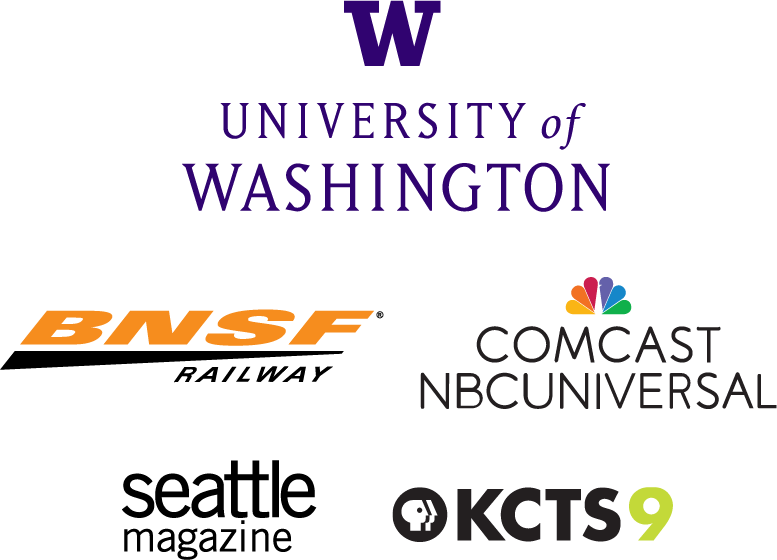Instead, he speaks passionately about the strides he made to benefit some of the city’s youngest residents.
Burgess, who retired from public service in November 2017 after his brief mayoral stint, is arguably the strongest supporter of free or subsidized preschool education for low-income families in Seattle. He’s known as the architect of a 2014 initiative that used property taxes to funnel $58 million toward the effort.
For his work, Burgess will be honored with Crosscut's 2018 award for Courage in Elected Office. Seats and tables for the Courage Awards breakfast can be purchased here.
Burgess, who has also worked as a radio journalist for KJR and as an officer with the Seattle Police Department, is known as a collaborator and a consensus builder. Those who know him often speak of his willingness to work with folks on both sides of an issue.
“I ran a company for 20 years,” Burgess says, referring to the advertising agency Burgess & Associates (later renamed The Domain Group) he owned from 1985 to 2005. “You have to learn to get along with people or you’re not going to get much done.”
The approach has gotten results, even if Burgess’ ideas have sometimes met resistance. Take the Seattle Preschool Program, which had its share of detractors in the beginning. Labor unions — the American Federation of Teachers and SEIU 995 — fiercely opposed the measure, on account of its quality standards.
“Everyone agreed investing in preschool was a good thing,” Burgess says. “But the unions argued that if we imposed too-high quality standards, it would harm the workforce, which included some of their members.”
The issue created a rift on the City Council, with some members siding with the unions. Burgess and his supporters didn’t back down.
“We weren’t going to give up quality control to [a group] that was self-interested and had never done this before,” Burgess says.
Detractors fought back by putting their own competing measure on the ballot. Burgess’ measure won.
But the battle wasn’t over. Burgess heard concerns from community and home-based preschool providers, who feared the city program would put them out of business. Many of them were immigrants and non-English speaking. A requirement that the lead teacher at each preschool have a Bachelor’s degree in early childhood education or a teaching certificate was of greatest concern.
Instead of dismissing these providers — some of whom were providing care for the very population the program was meant to help the most — Burgess came up with a way to work with them. He managed a compromise within the preschool program that would give providers a four-year window to achieve the required credential, and help them pay for the schooling to get it.
To date, the program has provided free preschool tuition to around 1,700 3- and 4-year-olds coming from low-income households.
The most recent evaluation by a joint team from Rutgers University and the University of Washington found that the size of Seattle’s Preschool program has expanded and its quality improved. The program’s scores in many categories (there are a range of measures, including classroom instructional quality) exceed those of the most recent national Head Start and Washington’s Early Childhood Education and Assistant programs. A new evaluation is due by the end of this month, and Burgess says researchers have told him that the results are “stunningly good.”
The seven-year levy is up for renewal as part of what is now called the Families, Education, Preschool and Promise Levy (formerly called the Families and Education Levy) that will appear on the ballot this November. If passed, it will help grow the program toward its goal of serving 2,500 kids per year. The ultimate vision for Seattle, Burgess says, is to achieve “universal preschool,” which national standards define as 70 to 80 percent of age-appropriate students attending preschool.
Burgess, meanwhile, has stepped out of elected office, but he hasn’t checked out completely. He has been a vocal supporter of the upcoming levy to expand the Seattle preschool program, he co-wrote an opinion piece earlier this year opposing the city's proposed “head tax,” and he helped Mayor Durkan in the search for a new police chief. Plus, he’s currently enrolled in courses at UW, finishing up a political science degree he stepped away from many years ago. He tells Crosscut he just finished a literature review on the question of whether high quality preschool can help save democracy.
The verdict? We’ll have wait for his white paper. In the meantime, Burgess says, “I’m pretty excited about this.”
Editor's note: Courage Award winners are nominated by the community and selected by an independent panel of community leaders.
2018 Courage Awards are sponsored by:




